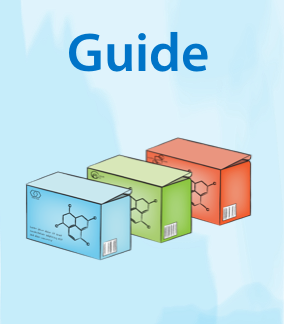
Arthritis Consumer Experts (ACE) has been learning about biosimilars since 2009 and has become a national thought leader, conducting biosimilar workshops and sharing education with multi-stakeholder groups across Canada. The ACE biosimilars dialogue across Canada has included patients, health care professionals and policy decision makers in government and private health insurance.
Annual spending on biologics continues to rise dramatically for public and private drug plans in Canada. At the same time, 55 Health Canada approved biosimilar biologics are now available, including biosimilar options for two of Canada’s biggest selling originator biologics – Remicade and Humira. With a roughly 40%-50% discount on the price of originators (depending on molecule), biosimilars offer significant savings to private and public drug plans. In 2022, biosimialrs accounted for 13.7% of all spending on biologics, compared with 8.9% in 2021.[1] However, Canada ranks well below the OECD median for biosimilars market penetration, meaning most of our private and public drug plans haven’t realized the savings that many other countries have, like Norway, the United Kingdom, Italy, Sweden, France, and Germany, to the benefit of patients and their healthcare systems.[2] Since biosimilar medicines have been available in 2006, healthcare systems were able to reinvest $25 billion total savings across Europe.[3]
The leading regulators in the world – including the European Medicines Agency, Food & Drug Administration in the U.S and Health Canada – support well-controlled transitions to biosimilars. Patients need to know transition policy has been safely and effectively implemented over the past 19 years with hundreds of thousands of patients with autoimmune diseases such as inflammatory arthritis in many countries in Europe with no compromise to patient safety, effectiveness or quality of care.
For the past eight years, federal, provincial, territorial and private insurance drug plans in Canada have mandated the use first of biosimilar versions ahead of their originators for treatment-naïve patients (patients who have not previously received the biologic in question). Since 2019, public drug plans have also begun implementing biosimilar transition policies that change coverage for specific biologic medicines.
Biosimilars Transition Policy in Canada
In the context of biosimilar use, Health Canada considers transitioning or "switching between authorized products to refer to a change from routine use of one specific product to routine use of another specific product. Patients and health care providers can have confidence that biosimilars are effective and safe for each of their authorized indications. No differences are expected in efficacy and safety following a change in routine use between a biosimilar and its reference biologic drug in an authorized indication.”[4]
During the period of transition policy implementation, the drug plans cover both originator and biosimilar medicines for the affected diseases, providing time for patients to understand the biosimilar transition and their treatment options with their specialists. Following the end of a transition period, the drug plans only cover the biosimilar versions for the treatment of diseases affected by the transition policy. Patients unable to transition or who have an adverse response to the biosimilar can seek exceptional “special authority” coverage for the originator.
Prince Edward Island became the latest province or territory to expand the use of biosimilars when it launched on October 12, 2023, its Biosimilar Initiative where those covered under the PEI Pharmacare program will have until June 30, 2024, to work with their health care providers to a biosimilar version of their originator biologic.[5]
On March 29, 2023, the Government of Yukon announced it was enhancing the public drug plan with the implementation of a new policy where affected Yukoners enrolled in Pharmacare or the Chronic Disease and Disability Benefits program transitioned from their current biologic drug to a biosimilar.[6]
Newfoundland and Labrador became the ninth Canadian province and territory on March 24, 2023, to implement biosimilars transition policy, which moved patients from certain originator biologics to the biosimilar versions.[7]
Commenting on the implementation of biosimilar transition policy, Sylvia Jones, Ontario Deputy Premier and Minister of Health said: "Ontario is joining other provinces and territories in the country by expanding the use of safe and effective biosimilar drugs. Patients will continue receiving the same high-quality treatment, while allowing the government to fund more new drug therapies, bring innovation to the health care system and continue its work to deliver better, connected patient care."[8]
Starting on March 31, 2023, Ontario Drug Benefit (ODB) recipients who are on an originator biologic began transitioning to a Health Canada approved biosimilar version of the drug at no cost.[9]
In November 2022, Saskatchewan launched its Biosimilar Initiative, where approximately 24,000 existing patients already receiving an originator biologic, transitioned to a biosimilar version.[10]
Nova Scotia announced its new transition policy in February 2022, which involved medications used for inflammatory arthritis, inflammatory bowel disease and psoriasis, as well as certain insulins used to treat diabetes.[11]
In December 2021, Northwest Territories launched a Biosimilars Initiative with expected savings from the implementation of transition policy is to be reinvested to help fund coverage by increasing the medications that the supplementary health benefits programs cover in the future.[12]
Quebec changed its coverage in May 2021 for certain originator medications through the Public Prescription Drug Insurance Plan and required patients to transition from the originator medicine that they were on to a biosimilar version of that medicine.[13]
In April 2021, New Brunswick launched its Biosimilars Initiative, which involved transitioning patients from originator biologic medicines to their biosimilar versions.[14]
Alberta announced in December 2019 its Biosimilar Initiative to expand the use of biosimilar medications through transition policy, explaining “patients will continue receiving the same safe and effective treatment, but at a lower cost.”[15]
In May 2019, British Columbia was the first province to implement biosimilars transition policy. Since implementation, B.C. has reported that thousands of patients living with inflammatory arthritis, diabetes and inflammatory bowel disease have been safely transitioned.[16] Through the launch of its biosimilars switching policy, British Columbia stated it is improving the sustainability of its PharmaCare program by adding new medicine listings and boosting existing medication coverage for patients.[17]
For up-to-date information about biosimilars policies for each provincial and territorial public drug plan, please click here.
Why are public drug plans transitioning patients from an originator biologic to a biosimilar biologic?
A key benefit of transitioning patients is hundreds of millions of dollars in cost savings to the healthcare system. Biosimilars have the potential to improve access to biologics (both originators and biosimilars) and save public and private healthcare systems billions of dollars now, and over the coming years.
A study commissioned by the Canadian Government’s Patented Medicine Prices Review Board (PMPRB) has estimated that private and public drug plans across Canada could save from $332 million CDN to $1.81 billion CDN in the third year following biosimilar entry across a portfolio of products.[18]
According to the Ontario Drug Policy Research Network: “Utilization and public spending on biologic drugs continue to grow in Ontario, with a projected annual spending of nearly $1.4 billion in 2021. In contrast, uptake of biosimilars has been low, with less than 1 in 5 biologic users accessing these less costly medications when they are available. Initiatives should be explored that could increase the utilization of biosimilars, given the large potential for cost savings for the government.”[19]
The Patent Medicines Prices Review Board estimates that Ontario could save more than $200 million annually with the implementation of its biosimilar policy.[20] At the launch announcement, the Ontario government stated the biosimilar transition policy will allow Ontario to invest more in new and innovative drug therapies and continue to grow the roster of publicly funded life-saving drugs.
At the announcement of the third phase expansion of its Biosimilars Initiative program in August 2020, the B.C. government stated this next phase would allow it to put another $30.7 million over the next three years, in addition to the $96.6 million from earlier phases of the Biosimilars Initiative, back into BC’s healthcare system.[21] In April 2021, the B.C. government added another biosimilar (adalimumab) for provincial coverage, citing additional savings of over $100 million over three years.[22]
When it announced its biosimilar transition policy in December 2019, the Alberta government claimed switching to biosimilars would save between $227 million and $380 million over the next four years once fully implemented.[23] Quebec's biosimilar policy is expected to generate annual savings of $100 million by 2022, which will be reinvested in Quebec's healthcare system and will help improve access to innovative drug therapies.[24] In Saskatchewan, the Ministry of Health estimates that the province will see annual savings of approximately $20 million once patients complete the transition to biosimilars by May 1, 2023.[25]
Current Canadian biosimilar biologic policies
Current Canadian biosimilar biologic policies
Public and private drug plans are adopting biosimilar policies that affect Canadians living with many disabling and life-threatening chronic diseases, such as inflammatory arthritis, cancer, diabetes, inflammatory bowel disease, multiple sclerosis, Crohn’s disease, psoriasis, and age-related macular degeneration.
For up-to-date information about biosimilars policies for each public drug plan, please visit the websites below:
British Columbia
Saskatchewan
Prince Edward Island
Northwest Territories
Non-insured Health Benefits (NIHB)
References
[1] Canadian Institute for Health Information. Prescribed Drug Spending in Canada, 2022. CIHI; 2023. Infographic
https://www.cihi.ca/en/prescribed-drug-spending-in-canada-2023
[2] Patented Medicine Prices Review Board: Biologics in Canada. Part 1: Market Trends
[3] The impact of biosimilar competition in Europe, IQVIA (2021)
https://www.medicinesforeurope.com/wp-content/uploads/2022/05/Facts-and-figures-BIOS-2022.pdf
[4] Health Canada: Biosimilar biologic drugs in Canada: Fact Sheet
[5] PEI Biosimilar Initiative
https://www.princeedwardisland.ca/en/service/pei-biosimilar-initiative
[6] Yukon government website: Supporting your patients switching to a biosimilar
https://yukon.ca/en/supporting-your-patients-switching-biosimilar
[7] NLPDP Biosimilar Initiative
https://www.gov.nl/ca/hcs/prescription/biosimilars/
[8] Ontario Expanding Safe Use of Biosimilars
https://news.ontario.ca/en/release/1002611/ontario-expanding-safe-use-of-biosimilars
[9] Ontario Ministry of Health: Biosimilars - Information for Patients
https://www.health.gov.on.ca/en/pro/programs/biosimilars/default.aspx
[10] Saskatchewan Biosimilars Initiative
[11] Nova Scotia biosimilars initiative
https://novascotia.ca/news/release/?id=20220204002
[12] Northwest Territories Biosimilars Initiative
https://www.hss.gov.nt.ca/en/services/biosimilar-initiative
[13] Le ministère de la Santé et des Services Sociaux – Assurance médicaments
https://www.ramq.gouv.gc.ca/fr/citoyens/assurance-medicaments/connaitre-conditions-couverture-regime
[14] New Brunswick Biosimilars Initiative
[15] Alberta Health: Biosimilar Drugs
https://www.alberta.ca/biosimilar-drugs.aspx
[16] B.C. Ministry of Health: Biosimilars Initiative for patients - History of previous biosimilar listings
[17] British Columbia Ministry of Health: Biosimilars Initiative
https://news.gov.bc.ca/releases/2019HLTH0080-001072
[18] The Patented Medicines Prices Review Board, Government of Canada. Potential Savings from Biosimilar in Canada poster.
http://www.pmprb-cepmb.gc.ca/CMFiles/NPDUIS/2017_Conference_Posters/post_6_biosim.pdf
[19] Tadrous M, McCormack D, Martins D, Kitchen S, Singh S, Gomes T. Current and Prospective Utilization of Innovator Biologics and Biosimilars in Ontario. Toronto: Ontario Drug Policy Research Network; January 2020.
[20] Patented Medicines Prices Review Board, "Biosimilars in Canada: building momentum in the wake of recent switching policies."
[21] B.C. Government News: B.C. expands biosimilar program
https://news.gov.bc.ca/releases/2020HLTH0257-001569
[22] B.C.'s biosimilars program expands
https://news.gov.bc.ca/releases/2021HLTH0067-000653
[23] Alberta Biosimilars Initiative
https://www.alberta.ca/biosimilar-drugs.aspx
[24] Le ministre Christian Dubé annonce un virage vers les médicaments biosimilaires, Québec, le 18 mai 2021 (in French only)
https://www.msss.gouv.qc.ca/ministere/salle-de-presse/communique-2864/
[25] Saskatchewan Launches Biosimilars Initiative
What are ACE's views on biosimilar biologics policies in Canada?
What are ACE's views on biosimilar biologics policies in Canada?
As biosimilars research is published in peer-reviewed medical journals and policies regulating them evolve, so do ACE’s organizational views. ACE provides the latest research-based education and information on biosimilars to its members, subscribers and the public. Our guiding principle has been, and continues to be, to follow the scientific evidence in our therapeutic area. Based on current biosimilars regulatory approvals, peer-reviewed, well-designed research studies and current meta-analysis, ACE’s views are:
- Treatment of patients living with inflammatory arthritis should ask for and expect the best care possible through shared decision-making between themselves, their rheumatologist and other health care providers.
- Biosimilars may have advantages over their originators due to improvements in manufacturing processes, delivery devices, among others.
- Biologic biosimilars reimbursement policy has the potential to save public and private healthcare systems billions of dollars now and over the coming years.
- More than 16 years of clinical experience shows that biosimilars approved through European Medicines Agency can be used as safely and effectively in all their approved indications as their originators.
- Policy development related to biosimilars to treat inflammatory arthritis should include unbiased and credible patient and rheumatologist participation who fully disclose their sources of funding from the manufacturers of the drug products affected by the policy.
- Patients should be able to assess treatment (or no treatment) risk against benefit and have tools to enable them to discuss the pros and cons of all treatment options with their healthcare team.
- Policy transition is appropriate if the prescribing physician and their patient have the education and information tools they need to support the patient in all aspects of accessing their biosimilar, from “care coach” to help with public or private drug plan paperwork, to infusion clinic and pharmacy orientation, and adherence support.
- Government should reinvest policy transition savings in a timely manner into new medicines on drug plans for unmet patient needs, list biologics and tsDMARDs with revised/relaxed reimbursement criteria to make access more efficient and implement other important aspects of inflammatory arthritis models of care, such as instituting rheumatology nursing billing codes.
- Treatment results should be collected on patients in whom multiple transitions are made between biosimilars and originators.

Do you have questions about biosimilar biologics policy?
Public and private drug plans are providing reimbursement for an increasing number of Health Canada approved biosimilars. If you have questions about biosimilars policies or initiatives where you live, please contact ACE at feedback@jointhealth.org.
Do you have questions about biosimilar biologics policy?
Provincial drug plans and private health insurers are providing reimbursement for an increasing number of Health Canada approved biosimilars. If you have questions about biosimilars policies or initiatives where you live, please contact ACE at feedback@jointhealth.org.
Do you have questions about biosimilar biologics policy?
Provincial drug plans and private health insurers are providing reimbursement for an increasing number of Health Canada approved biosimilars. If you have questions about biosimilars policies or initiatives where you live, please contact ACE at feedback@jointhealth.org.

Arthritis Consumer Experts
© 2024

ACE thanks Arthritis Research Canada (ARC) for its scientific review of ACE and JointHealthTM information and programs.

Arthritis Consumer Experts
© 2000-2021

ACE thanks Arthritis Research Canada (ARC) for its scientific review of ACE and JointHealthTM information and programs.


Arthritis Consumer Experts
© 2000-2021

ACE thanks Arthritis Research Canada (ARC) for its scientific review of ACE and JointHealthTM information and programs.











